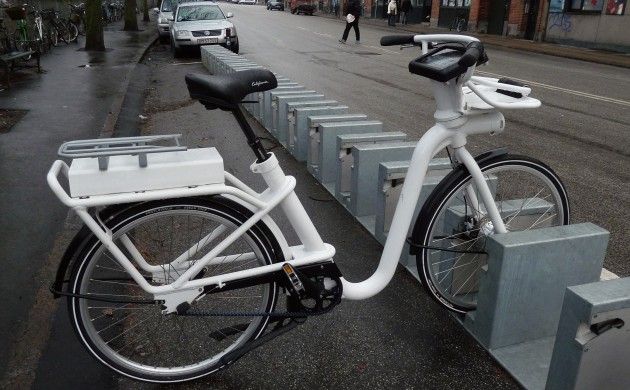The public electric bike programme in Copenhagen is gaining traction, but still has a way to go to fully capture the public’s imagination. Some say the bulky bikes are too heavy and tough to manoeuvre. The programme has also suffered from well-documented operational issues.
Bycyklen, the city’s bike-sharing program has grown from 169,000 rides in 2015 to 933,000 last year. This year the effort seems to be on track for the same amount of riders.
Even so, public cycling still lags far behind the over 400 million private annual journeys taken by Danes each year, and it is hard to tell if the public programme is meeting its principal goal of inspiring people to tale bike trips instead of using their cars.
Still costly
Copenhagen’s electric bikes are both ambitious and expensive. They all have a tablet computer on the handlebars that allows users to log in and unlock bicycles, manage their accounts, and navigate to a destination or find nearby docking stations.
Each of the 1860 bike cost about 17,000 DKK. Riders pay on average 30 kroner per hour to use the electric bikes, which are clumsy to get started, but once the electric motor kicks in, are quite effective at negotiated Copenhagen’s excellent bike paths.
Competition
Gobike, the company that originally started the programme went belly-up earlier this year and Bycyklen’s operator, Bikeshare, has required propping up from several public and private entities.
Private companies like Donkey Republic are wading into the bike-sharing network far as well. Users can unlock bikes via their mobile phones using a Bluetooth signal.















